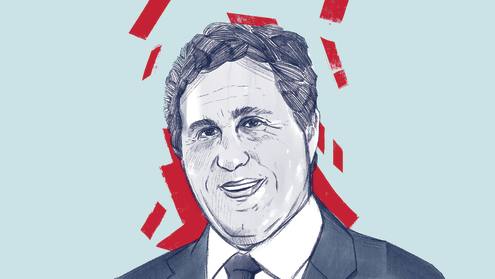Chilean president Gabriel Boric recently completed a successful tour of Spain, Belgium, Switzerland and France, as part of his visit to attend the EU-Celac [Community of Latin American and Caribbean States] Summit 2023 in Brussels. Chile’s leading role at the summit, and the enthusiasm generated by the country in Europe, are due to three main factors.
First, the strength and clarity with which Mr Boric has defended democratic principles, respect for human rights and international law. Second, the depth and stability of commercial relations between Chile and Europe, which will be strengthened by the upcoming signing of the Advanced Framework Agreement that will raise standards and strengthen commercial ties with the EU. Finally, Chile’s strategic global position in the future carbon-neutral economy, thanks to the development of the copper and lithium industries, and the country’s geographical advantages for the production of green hydrogen.
Chile has a historic opportunity, given the country’s vast reserves of critical minerals and mining know-how. It benefits from geographical characteristics including high levels of sunlight in the north and strong winds in the south, and the technical and institutional knowledge accumulated following more than 10 years of successful transition of its energy matrix. As such, Chile has the necessary conditions to make the fight against climate change a driving force of its economic growth.
Together with our ongoing efforts to make the most of this opportunity, we are working to reach balanced economic development, where the transition toward carbon neutrality is achieved by: creating high quality employment; maintaining concern for other environmental crises, such as the loss of biodiversity and the global waste crisis; and strengthening our democratic institutions.
Public policies
The promotion of this green and inclusive economic development strategy is clearly conveyed in the public policies implemented by our administration.
First, during 2022, the first year of Mr Boric’s government, we were able to reduce poverty levels to 6.5% (a decrease of four percentage points compared with 2020 and two percentage points compared with 2017), while also achieving fiscal consolidation with a surplus of 1.1% in 2022 compared with a deficit of 7.7% in 2021.
Second, in 2023 – the first year in which the budget was set by our government – the allocation of public resources towards investment in science, technology, knowledge and innovation grew by 13.3% in real terms. These efforts to increase science and technology expenditure have been focused on three strategic objectives: decarbonisation, climate change resilience and economic diversification. Additionally, the recently approved mining royalty will enable the creation of a fund for productivity and development that will be managed by Chile’s regional governments, boosting the country’s decentralisation.
During 2022, the first year of Mr Boric’s government, we were able to reduce poverty levels to 6.5%.
Third, we will strengthen the financing system for development. This year, we will introduce a bill to create a new financial institution, the main task of which will be to provide guarantees for the banking system to substantially increase loans to investment projects focused on technology and high added value that accelerate the green transition, including to small and medium-sized enterprises (SMEs), in order for them to incorporate new technologies into their operations. We will also aim to expand Chile’s venture capital market, so that start-ups can access funding for their growth.
Fourth, we will undertake a significant transformation of our investment permit system. With regard to the environmental impact assessment system, we will promote increased participation and higher environmental standards, while also reducing processing times. We will also implement a structural reform of the sectoral (non-environmental) permit system for investment projects, in order to reduce the excessive bureaucracy, delays and uncertainty associated with this type of permit. To do this, we will leverage the experience of other Organisation for Economic Co-operation and Development countries which have successfully modernised their investment project evaluation processes without incurring significant risks in terms of the quality of those projects.
Fifth, we have implemented ambitious development plans for the lithium and green hydrogen industries. In the case of lithium, the strategy launched by Mr Boric aims to achieve a major increase in lithium production through public-private joint ventures, while also protecting a significant part of Chile’s salt flat ecosystems (at least 30% of the surface area of the country’s almost 50 salt flats), and generating higher added value. In the case of green hydrogen, we have ensured continuity of an ambitious strategy launched by the previous government, thus generating a state policy which transcends the ups and downs of the political cycle and enables us to provide credible global leadership in this industry.
We can also highlight the flexibility and pragmatism with which the state’s role in these strategies has been defined. In the case of the lithium industry, the state will play a leading role through partnerships with private sector players in mining operations and throughout the value chain. Meanwhile, in the case of hydrogen, the state will act as a coordinator between private sector players, promoting an ambitious and modern industrial policy which maximises the wellbeing of the country’s population as a whole.
Sixth, in addition to our recent achievements on poverty reduction, we are also implementing a broad and diverse set of measures to ensure that this economic transition contributes to reducing Chile’s high levels of inequality. Congress has approved a 23% real increase in the minimum wage over the first two years of Mr Boric’s government (between March 2022 and June 2024), with an unprecedented subsidy for micro-enterprises, SMEs and co-operatives to support them in this transition; the lithium and green hydrogen strategies include a key component focused on supply chains; and a bill is currently being discussed in Congress to stipulate that at least 40% of the directors of large companies must be women.
Finally, Mr Boric proposes a “fiscal new deal” to fund a significant increase in spending on pensions, healthcare, citizen safety and the first stage of a national care system. This will be achieved through increased tax revenue from higher economic growth, spending efficiency, a reduction in tax evasion and avoidance, and higher personal income tax for high-income individuals. As such, we can progress toward the creation of a welfare state in a fiscally responsible way.
Climate emergency
All of these measures will allow us to generate greater fiscal resources in order to promote greater economic growth and thus advance in the configuration of a welfare state in a fiscally responsible way.
In Chile, we have good reason to be optimistic. The difficulties faced by the global economy through its successive crises, together with the constant challenges that we have had to confront related to the impact of climate change — fires, droughts and floods — should not dampen our hopes for the future that is in our hands. As a country, we have a huge opportunity to make the fight against climate change the main lever of our economic growth and inclusive development.
Nicolás Grau is Chile’s minister of economy, development and tourism.












